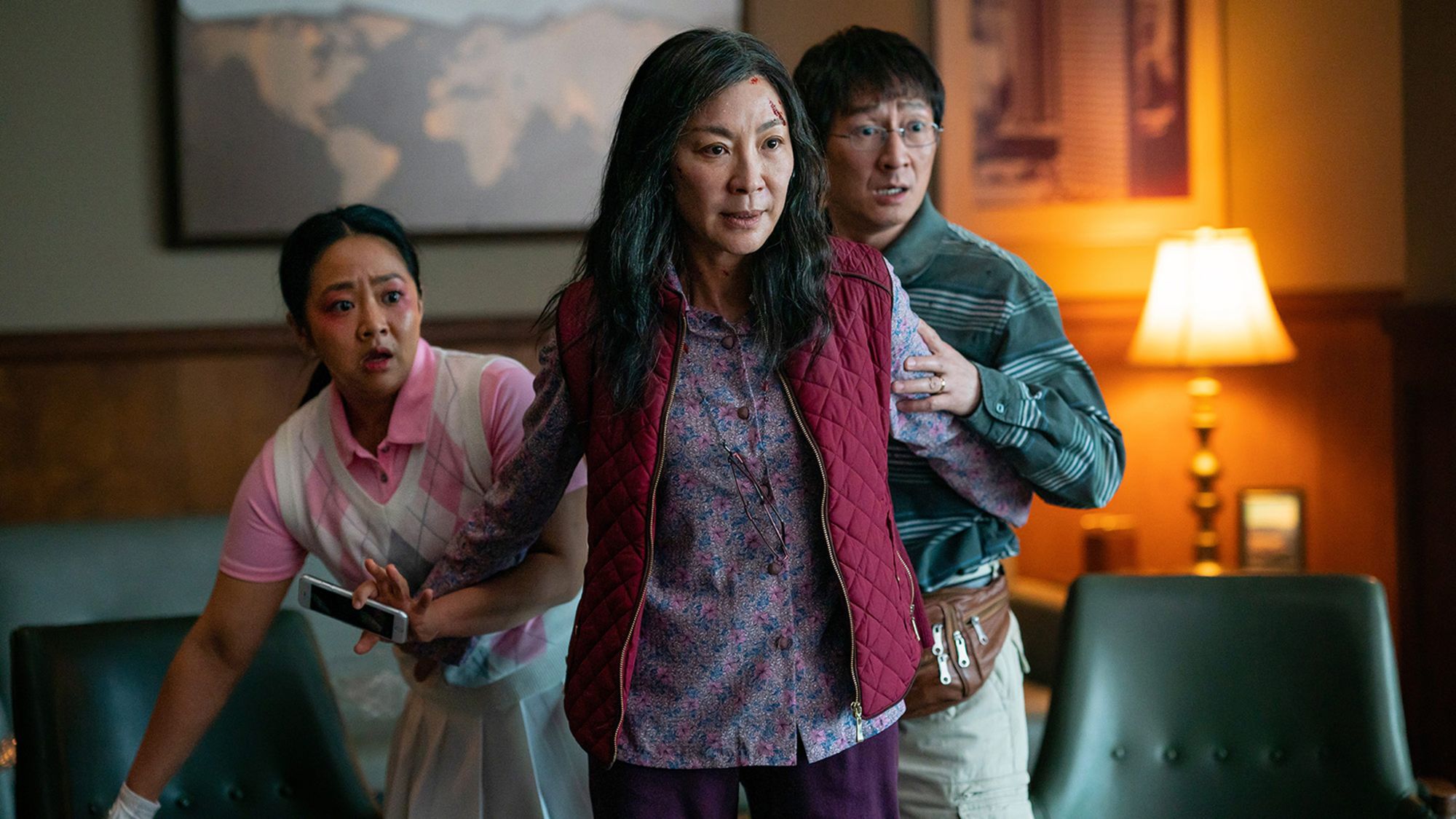Editor’s Note: This feature is part of CNN Style’s series Hyphenated, which explores the complex issue of identity among minorities in the United States. This story was updated after the Academy Awards.
Throughout the awards season, the stars and creators of “Everything Everywhere All at Once” have shared their personal experiences with racism and representation in Hollywood.
Many of them have noted how significant it is to receive this level of recognition in an industry that’s been historically hard to break into for non-White actors, and they’ve also shared how their lives as immigrants and children of immigrants have shaped their work.
The latest chapter unfolded on Sunday night, with a series of powerful acceptance speeches as the genre-bending movie won seven Oscars.
“For all the little boys and girls who look like me watching tonight, this is a beacon of hope and possibilities. This is proof that that… dreams do come true,” Michelle Yeoh said after she made history as the first woman of Asian descent to win the Academy Award for best actress.
Below are some of the stories shared on Oscars night and in previous interviews and awards ceremonies.
Someone marveled that she spoke English
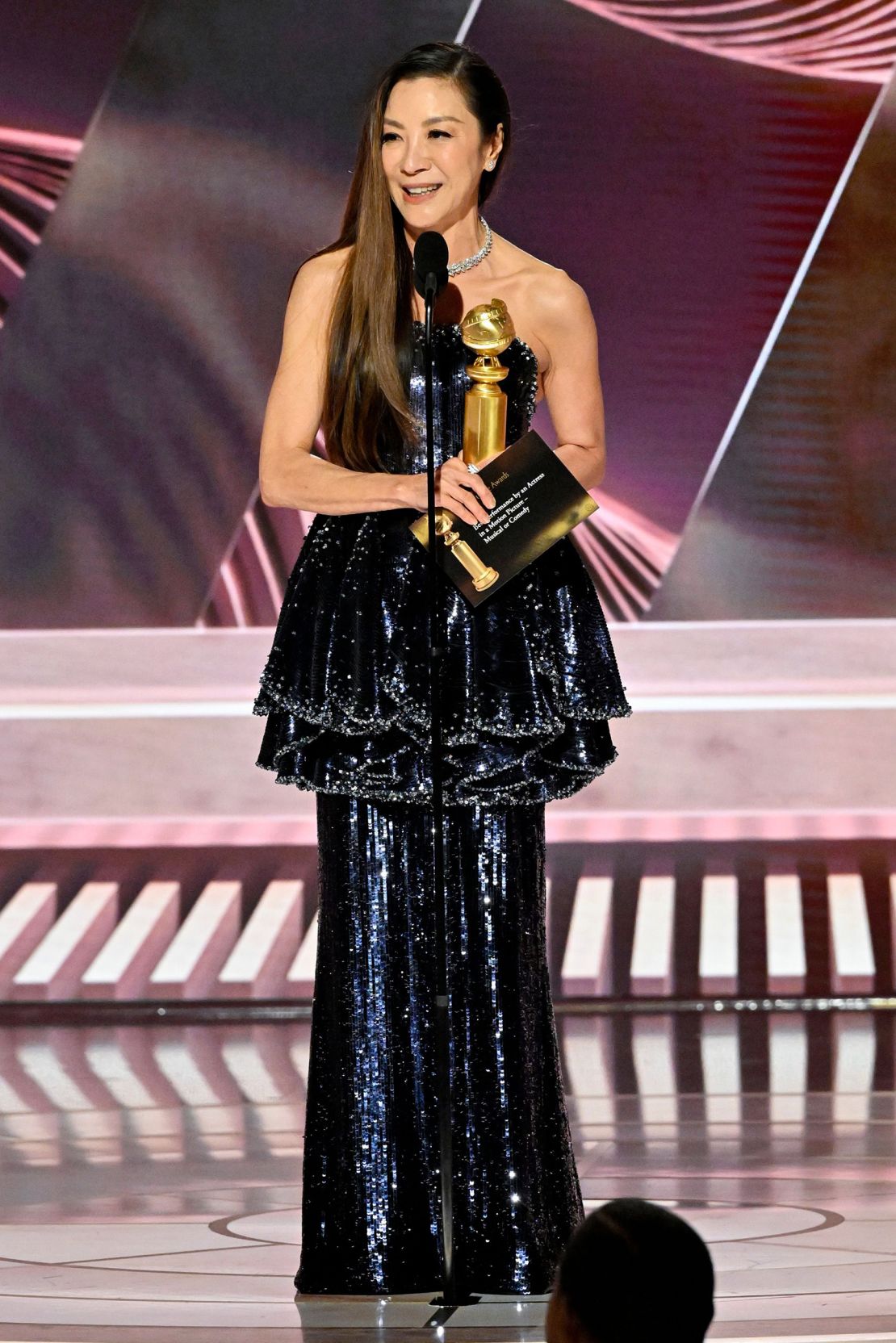
Yeoh, who plays failing-laundromat-owner-turned-superhero Evelyn Wang in the film, arrived in Hollywood after many successful years as an actor in Hong Kong.
She soon learned the reality of the US entertainment industry was different from what she expected.
“It was a dream come true until I got here,” Yeoh said as she accepted a Golden Globe award for best actress. “Because, look at this face. I came here and was told, ‘You’re a minority.’ And I’m like, ‘No, that’s not possible.’
“And then someone said to me, ‘You speak English!’ …and then I said, ‘yeah, the flight here was about 13 hours long so I learned.”
Yeoh was born in Malaysia and grew up speaking English, like many people who live in Asia and around the world.
“Everything Everywhere All at Once” is her first time receiving top billing in a Hollywood movie. Yeoh, 60, told CNN’s Christiane Amanpour that it’s been a long time coming.
“You receive scripts. And as the years get bigger, the numbers get bigger, the roles seem to shrink with that. As you know, as a woman, as an Asian woman… somehow they start putting you in boxes. And it’s always the guy who gets to go on the adventure and save the world,” Yeoh said.
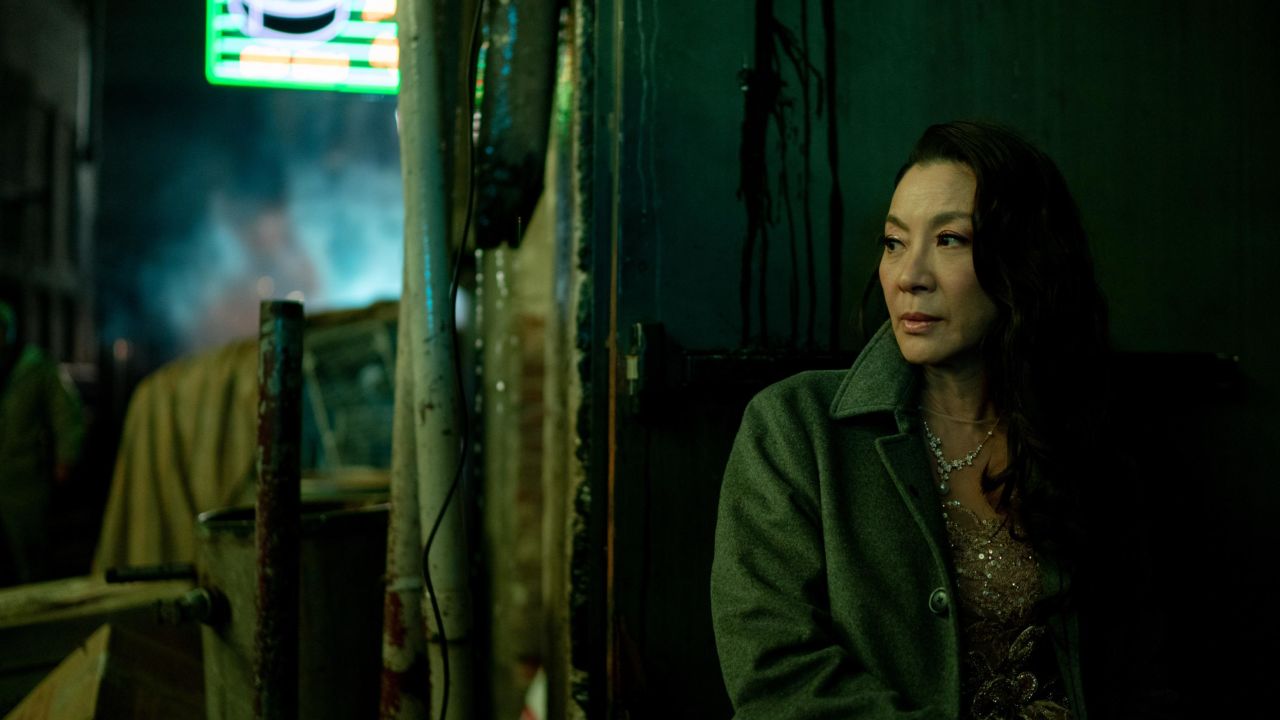
The part of Evelyn in the script from writer-director duo Daniel Kwan and Daniel Scheinert instantly grabbed her attention.
“This is a very ordinary woman, an Asian, immigrant woman, who is dealing with all the problems that we all can relate to,” Yeoh told Amanpour. “And what I loved about it, it was like this is an ordinary woman who is being seen, who’s given a role to play as a superhero.”
As she finished her best actress acceptance speech and got ready to step offstage on Oscars night, Yeoh spoke with the triumphant joy of someone who’s finally being seen in Hollywood as the versatile actor she’s always been.
“Thank you to the Academy,” she said. “This is history in the making.”
His phone stopped ringing because there weren’t enough roles for Asian actors
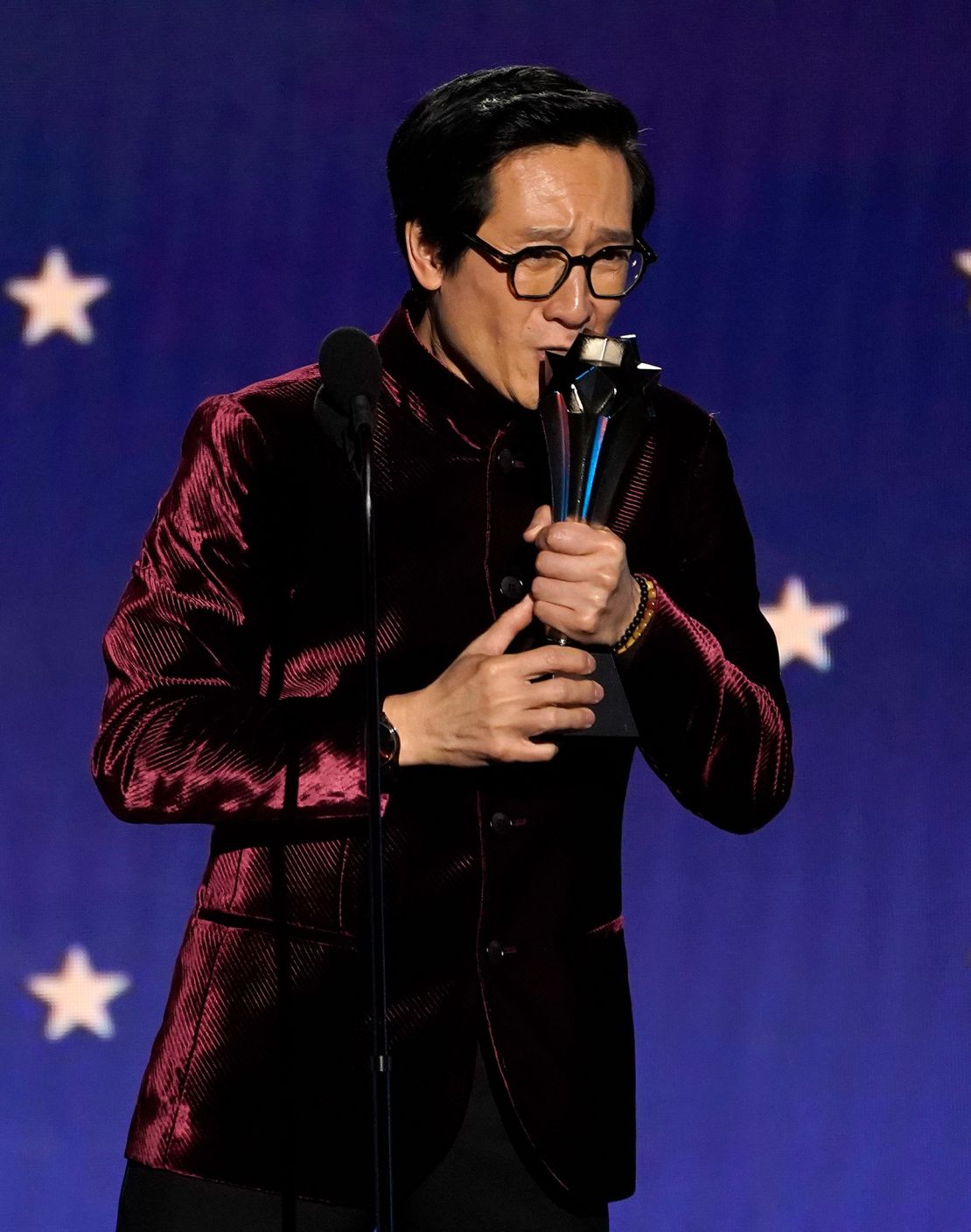
Ke Huy Quan teared up as he cradled the award in his arms.
“My journey started on a boat. I spent a year in a refugee camp. And somehow, I ended up here on Hollywood’s biggest stage,” Quan said after winning an Academy Award for best actor in a supporting role for his portrayal of the hapless yet heroic Waymond Wang.
“They say stories like this only happen in the movies. I cannot believe it’s happening to me. This — this is the American dream.”
But Quan has acknowledged the bumps in his journey, too, and how he almost gave up on his dreams when opportunities dried up.
Quan was born in Saigon and came to Los Angeles in 1979 after fleeing Vietnam and living in Hong Kong as a refugee after the war ended. He began his Hollywood career as a beloved child actor in “Indiana Jones and the Temple of Doom” and “The Goonies.” He kept on auditioning after that, but his phone stopped ringing, Quan told The New York Times.
“When I stepped away from acting, it was because there were so few opportunities,” Quan said as he won a Screen Actors Guild Award (SAG) for outstanding supporting actor.
Quan reimagined his career path, going on to study film at the University of Southern California and to work behind the scenes as a stunt coordinator and assistant director. He wouldn’t have another film role for nearly 20 years.
Seeing the Asian cast of the 2018 movie “Crazy Rich Asians” made him realize how much he missed acting. And as soon as he came across the “Everything Everywhere” script, he knew he was the right person to play Waymond.
“I wanted it more than anything. I thought it was written for me,” Quan told Boston NPR news station WBUR.
His big-screen comeback has earned him rave reviews and numerous accolades, including Golden Globe, Critics Choice and SAG awards for best supporting actor. And Quan, 51, says these days he’s feeling more optimistic about the Hollywood prospects for him and other Asian actors.
“The landscape looks so different now than before,” Quan said at the Screen Actors Guild awards. At that ceremony, he noted he was the first Asian actor to win in the best supporting actor category.
“This moment no longer belongs to just me,” he said. “It also belongs to everyone who has asked for change.”
He went on to offer words of encouragement for others who may feel the way he did for decades.
“To all those at home who are watching, who are struggling and waiting to be seen, please keep on going, because the spotlight will one day find you.”
His immigrant father helped inspire part of the movie’s plot
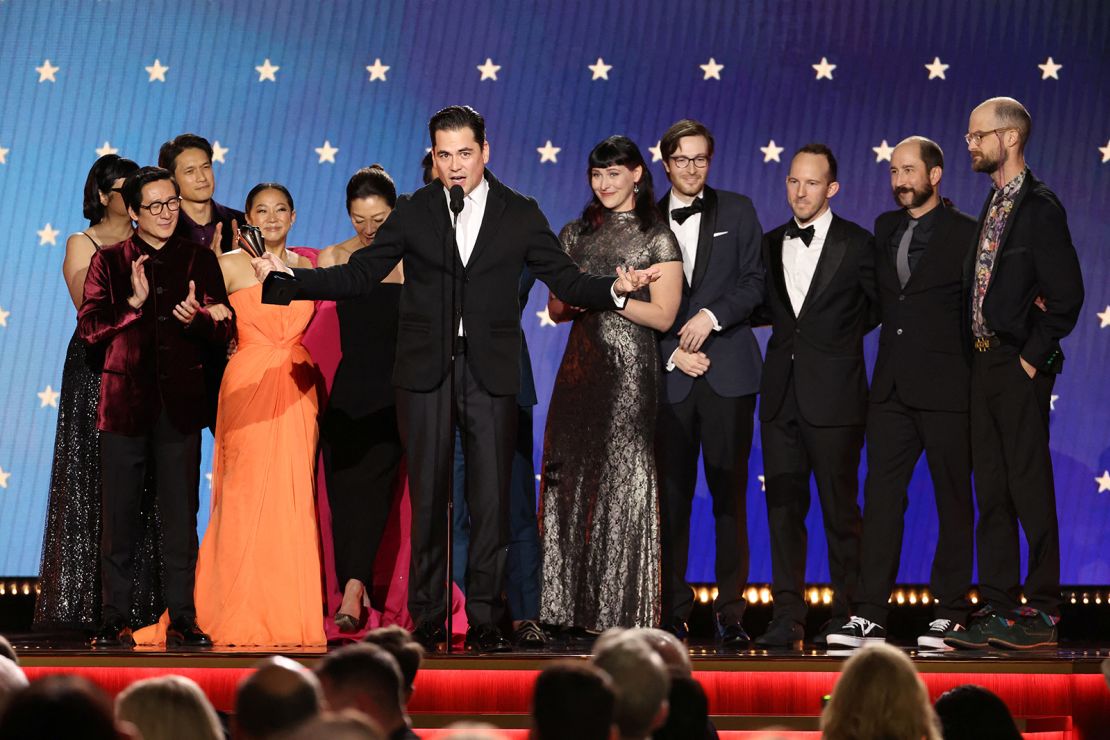
On a night full of joyous exuberance, producer Jonathan Wang’s speech at the end of the Critics’ Choice Awards offered a somber reminder.
As he accepted the best picture prize, Wang invoked his late father and the characters Yeoh and Quan played.
“This award is dedicated to my dad, a Taiwanese immigrant who worked himself into an early grave,” Wang said. “This is really dedicated to the Evelyns, the Waymonds, the immigrant parents who would kill themselves for us immigrant children, to give us a better life.”
He echoed that message on Oscars night as he accepted the film’s best picture award.
“This is for my dad,” Wang said, “who, like so many immigrant parents, died young.”
Wang’s father, Alex Wang, was a lifelong businessman and salesman, according to a 2016 obituary.
His name appears in the movie’s credits, and the producer has shared more about him in several social media posts.
“From the butchered movie titles to the unapologetic Chinglish, a touch of my Dad lives on in this film,” Wang posted on Instagram last year shortly before “Everything Everywhere” hit theaters.
The producer has said his father helped inspire one of the movie’s many wacky plot twists — a film-within-the-film dubbed “Raccacoonie,” which features a raccoon sitting on a chef’s head. It’s a reference to “Ratatouille” and a homage to his dad.
“Anyone who has Asian parents knows that they are famously bad at movie titles,” Wang told The Hollywood Reporter. “My favorite one is, he said, ‘Let’s go see ‘Outside Good People Shooting.’” That, Wang said, was his dad’s name for “Good Will Hunting.”
Wang again invoked his dad in an Instagram post after the 11 Oscar nominations for “Everything, Everywhere” were announced, describing how hard his parents had worked to keep their family bakery afloat and how watching the Academy Awards together was one of their few family traditions.
“After the commotion of nomination day faded, I finally got a moment to take a shower and have a second to myself,” Wang wrote. “As the water ran over my stunned face, I sobbed tears of joy — deep tears of joy — finally feeling a release and acceptance that my Dad was, and is, so proud.”
She feared becoming an actor because of what she didn’t see on screen
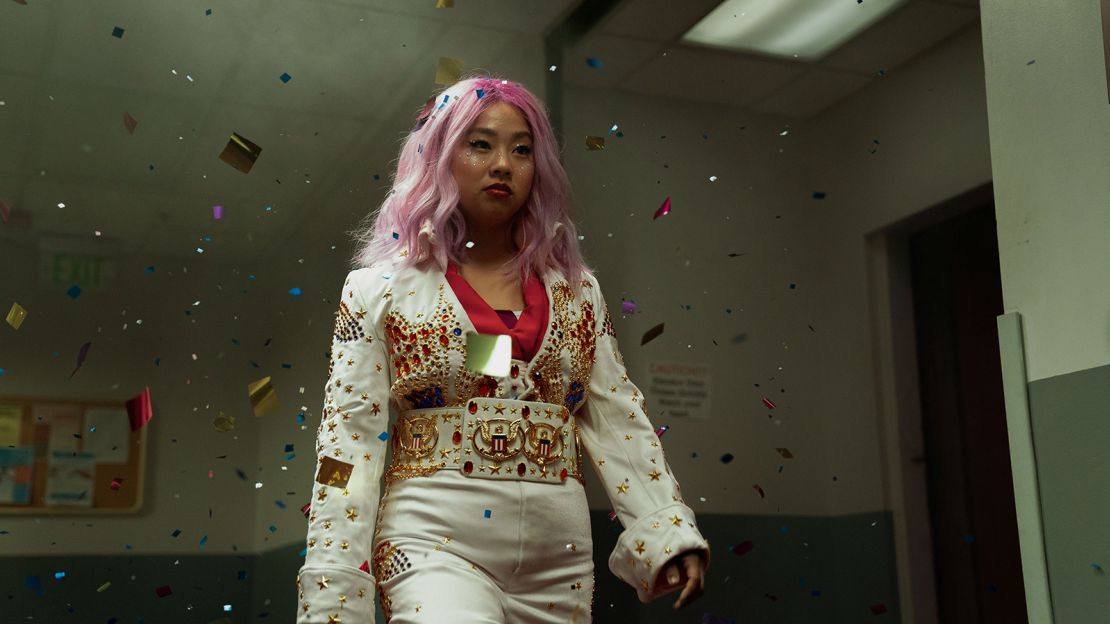
As Stephanie Hsu stepped on stage to accept a “breakout in film” award at the Unforgettable Gala, which celebrates Asians and Pacific Islanders in entertainment, she thought back to a memorable moment in her childhood.
Hsu had been chosen to act out a fake lemonade ad in front of her school. She held the empty lemonade carton in the same way she held her award at the glitzy LA ceremony in December.
“I remember thinking to myself, ‘That was really fun and I think I’m kind of good at it, but I should probably think of something more practical to do with my life.’ And that was at a really young age,” Hsu said, her voice shaking with emotion. “And I think it’s because — I know it’s because — this world, and the world of storytelling, felt so far away and so — like, if you don’t see it, you can’t possibly imagine that it’s ever going to be you or your friends up there or people who look like you.”
Despite her doubts, Hsu went on to study drama at New York University, become a Broadway star in “Be More Chill” and the “SpongeBob SquarePants” musical and land a prominent TV role in “The Marvelous Mrs. Maisel.”
But still, she says she had a hard time imagining she could succeed. That’s started to change in the whirlwind of acclaim around her powerful “Everything Everywhere” dual performances as downtrodden daughter Joy Wang and ruthless supervillain Jobu Tupaki.
“I’m so excited,” the 32-year-old said at the Unforgettable Gala, which celebrated its 20th anniversary last year. “I feel like I’ve never really allowed myself to love doing this because I’ve been so scared that it would never be possible. And I feel like this year has given me so much permission to truly love what I do, and I hope to make y’all proud, and I’m so excited to keep going.”
Hsu has said her own experience growing up as the daughter of a Taiwanese immigrant helped inform her performances in “Everything Everywhere.”
“What I was impressed by was the heartbeat of the story and this mother-daughter relationship,” she told Women’s Wear Daily. “It was almost like that dynamic was no explanation or discussion necessary. There was just something about it that I knew deeply in my bones.”
In a recent New York Times interview, Hsu cautioned against assuming that Hollywood’s longstanding issues with racism and representation have been resolved. She described being mistaken on the red carpet for “To All the Boys I’ve Loved Before” star Lana Condor, and a moment at a New York screening for “Everything Everywhere” when her Asian publicist was approached and praised for a performance he never gave.
“Listen, this ride is amazing, but that is real. We have not transcended this moment, right?” Hsu told the Times. “James Hong (who plays her grandfather in the movie) started acting at a time when people wouldn’t even say his name, they would literally just call him ‘Chinaman’ and say ‘Get on your mark.’ Michelle waited almost 40 years for her first chance of being No. 1 on the call sheet, and Ke left acting for (nearly) 20 years. As successful as this film has been, the biggest fear on the other side is, ‘What if this is my last chance?’”
When he started acting, producers said ‘Asians were not good enough’
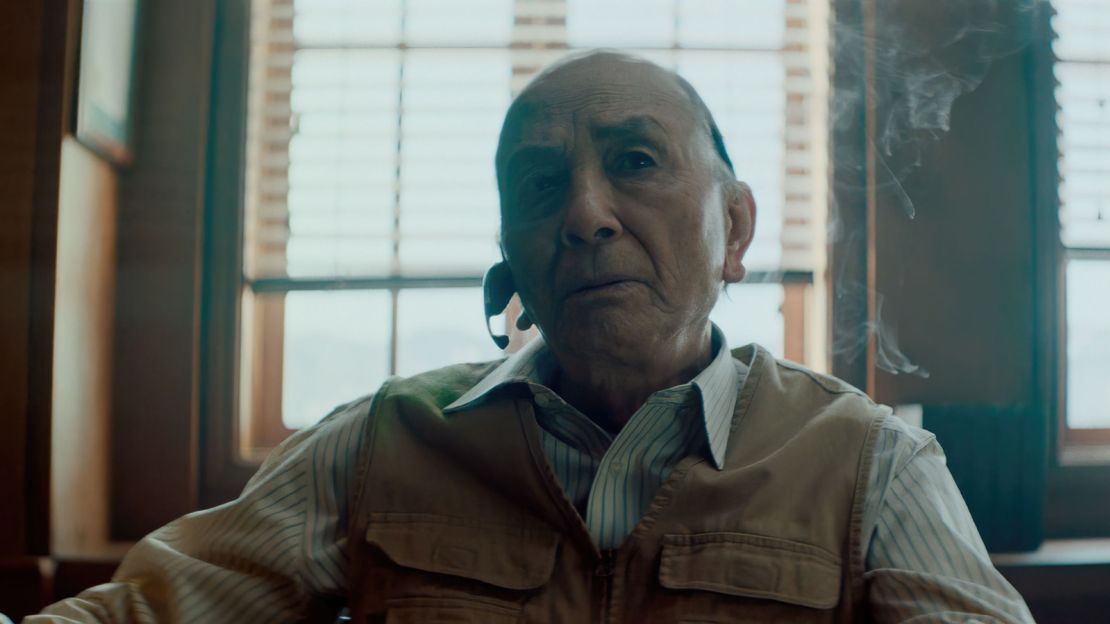
James Hong has hundreds of acting credits to his name, but it took nearly seven decades for him to end up center stage at the Screen Actors Guild Awards.
“There is one of us who has been supporting ensembles for longer than any of us has been alive,” Yeoh said as the cast of “Everything Everywhere” won the best ensemble award and ceded the stage to Hong, who’s 94.
Hong noted the first movie he appeared in starred Clark Gable.
“Back in those days, the leading role was played by these guys with their eyes taped up, and they talked like this,” said Hong, mimicking the offensive accent that was written for Asian characters at the time.
“And the producers said the Asians were not good enough. And they are not box office,” Hong added. “But look at us now.”
Yellowface was widespread in Hollywood when Hong’s career began, and he often found himself cast in stereotypical parts.
“I ended up in the early career mostly playing laundrymen, or persecuted Chinamen … it was tough, very tough, to get out of the mold,” he told Great Big Story in 2020.
The opportunities for Asian actors were so limited early in his career that Hong co-founded his own theater company, the legendary East West Players.
“That started the industry noticing who we were,” Hong told Great Big Story. “We weren’t just extras, or gimmick people. We were in a play that we organized. We were the main, lead people. We were the actors. And we commanded attention.”
As he commanded attention once again and drew a standing ovation from the crowd at this year’s SAG Awards, Hong noted he hopes to be on the awards circuit for years to come.
“I hope I will come back when I’m 100 years old,” he said.
CNN’s Stephy Chung and Megan Thomas contributed to this report.

